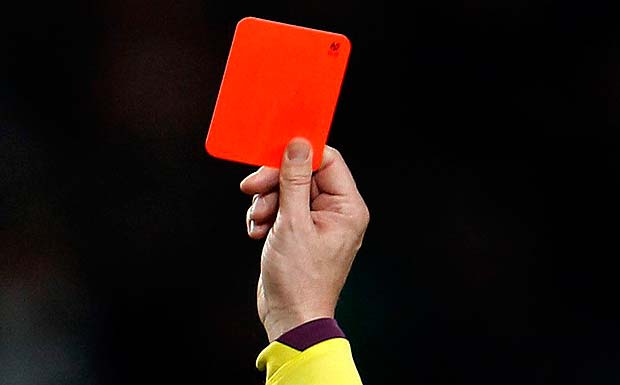Imagine for a moment the Rugby World Cup-winning captain, Siya Kolisi, on a gymnastics mat, trying to perform handstands and backflips. Or imagine Quinton de Kock packing down in the front row of the Stormers forward pack. How about giving Chad le Clos a tennis racquet, and expecting him to play as well as Kevin Anderson? Does all this sound a bit ridiculous? While they’re all accomplished athletes in their respective sport, it would be a reach to imagine they’d be competitive at any sport under the sun. However, the proposed legislation would grant the Minister of Sport and Recreation the level of arbitrary power to dictate all manner of minutiae to private sport bodies, and, conceivably, which sport our international stars must play.
The National Sport and Recreation Amendment Bill is yet another attempt by the South African government to centralise another aspect of life under its control. The bill will, if enacted, effectively nationalise all sport (and recreation) in the country. Whichever sport you may be involved in, whether it is on an amateur, professional, or even casual level, this bill will give the minister all manner of control over yourself, your club, your association, your team, and your sport. To give one person, or even one whole government department, this much power over a personal part of people’s lives, does not bode well.
The bill aims to regulate the fitness industry and the procedure in bidding for and hosting international sport and recreation events. No government worker or minister has the level of expertise of anyone in the fitness industry (a very broad area itself) to presume that it is capable of beneficially regulating said industry, as opposed to destroying it. There is no rational reason for the process of bidding for tournaments and events to be centralised under a government department, never mind a single official.
Competition is an integral part of any sport. It means that athletes must hone their skills and fitness to try and outperform their fellow competitors, within a defined set of rules. Just as athletes need to improve because of competition, so too must different gyms compete with one another for membership. Gyms of all sorts, from Virgin Active to CrossFit, compete with one another based on a variety of factors: the gym’s cleanliness, ease of access, abundance of equipment, friendly staff, refreshment options, and general ‘feeling’, are all factors one may consider before joining a particular facility. If an individual is unhappy with the experience or service, they may choose to cancel their contract and head elsewhere. However, this bill will introduce a new and unnecessary party into the transaction: the Minister of Sport and Recreation.
The failures of centralisation and nationalisation in other areas of the South African economy and life are well documented. Pretending for one minute that the government can run an efficient, state-based sport system, borders on delusion. Imagine the delays, costs, and time one would waste if a group of individuals wishing to establish a sports club had to work through a government agency. The bill will also grant the Minister the power to impose whichever transformation and other regulations they deem fit. One person will have the power to determine details about what is, for many people, a central part of their lives, and for others their very livelihood.
[perfectpullquote align=”right” bordertop=”false” cite=”” link=”” color=”” class=”” size=””]The National Sport and Recreation Amendment Bill will discourage everyone from participating in sport; from those who play for fun with their friends on a Monday night at their local soccer park, to those who run out for the Springboks.[/perfectpullquote]
Some of the other highlights of the bill is that sportspersons may be conscripted into representing South Africa in international events, redress and representativity must be promoted in “recreation”, and sportspersons who do not comply with the dictates of international sport federations (which are private associations) might be fined or jailed for up to two years. All of this, of course, is unconstitutional. Among a host of other provisions, the bill violates South Africans’ right against forced servitude in section 13 and our right to freedom of association in section 18 of the Constitution.
Next to expropriation without compensation, this bill is perhaps the most authoritarian proposal to come out of government since the end of Apartheid.
If the goal of this bill is to improve sport in rural areas, the government is heading down the wrong road. Erecting more barriers and costs to participating in sport will simply discourage everyone, rich and poor, urban and rural. The government must focus on using its resources in effective, goal-bound ways, to look at where it can aid in the development of sports across the country. Added to this, sport associations and bodies should be left to develop further into their communities. It is for their own long-term survival that they must appeal to South Africans from all walks of life. After all, without customers and members, no facility or association could survive.
The unifying power of sport has proven, time and again in South Africa’s new democratic story, that organic teamwork and shared goals do much more to bring people together than any top-down government programme. The National Sport and Recreation Amendment Bill will discourage everyone from participating in sport; from those who play for fun with their friends on a Monday night at their local soccer park, to those who run out for the Springboks. There is no moral or practical reason for the government to pursue and adopt this bill; it must be vehemently resisted if a central part of South African life is to be left relatively free of arbitrary state control.
Chris Hattingh is Project Manager at the Free Market Foundation. The views expressed in this article are those of the author and not necessarily those of the Free Market Foundation.

